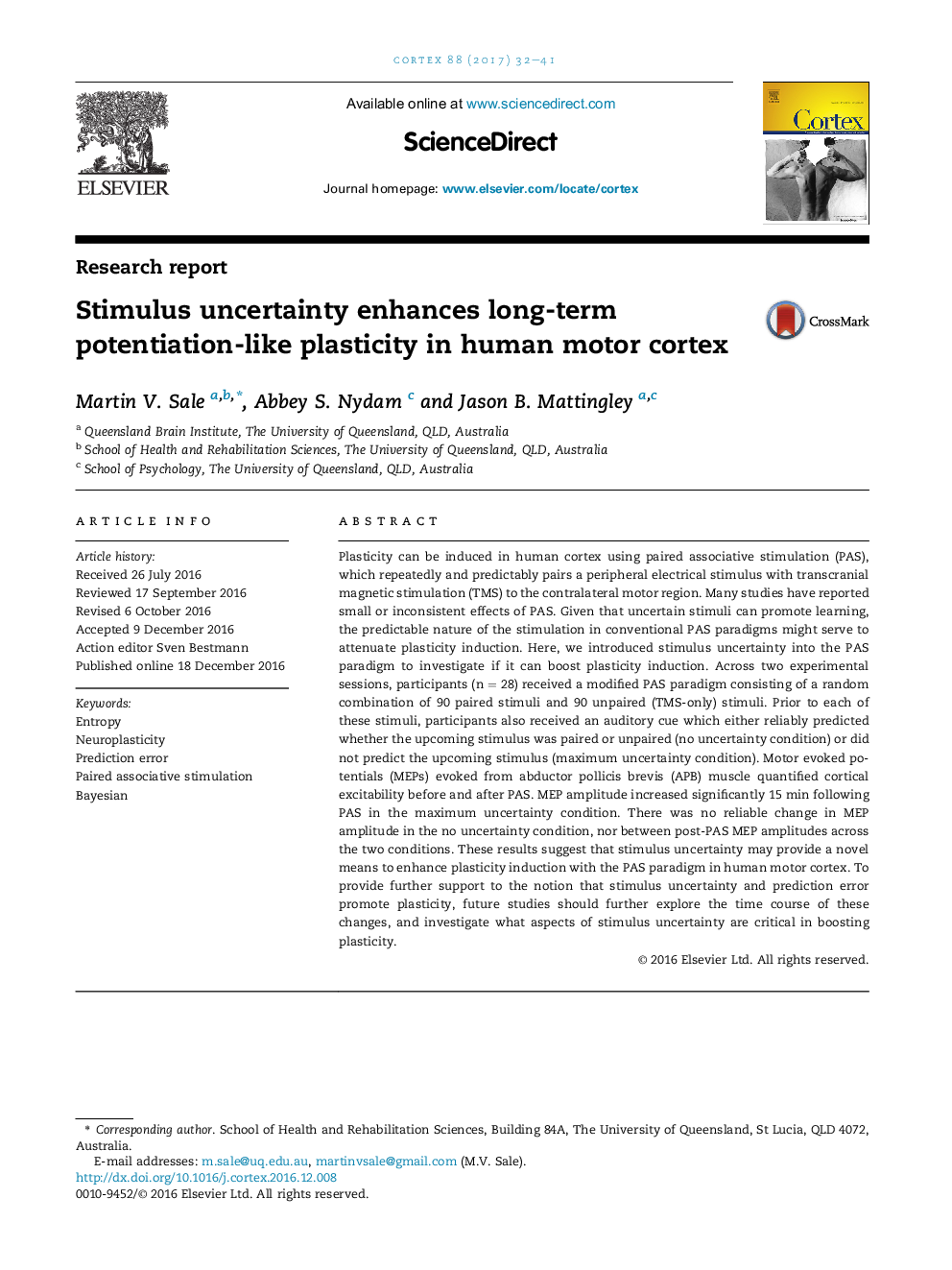| Article ID | Journal | Published Year | Pages | File Type |
|---|---|---|---|---|
| 5044661 | Cortex | 2017 | 10 Pages |
Plasticity can be induced in human cortex using paired associative stimulation (PAS), which repeatedly and predictably pairs a peripheral electrical stimulus with transcranial magnetic stimulation (TMS) to the contralateral motor region. Many studies have reported small or inconsistent effects of PAS. Given that uncertain stimuli can promote learning, the predictable nature of the stimulation in conventional PAS paradigms might serve to attenuate plasticity induction. Here, we introduced stimulus uncertainty into the PAS paradigm to investigate if it can boost plasticity induction. Across two experimental sessions, participants (n = 28) received a modified PAS paradigm consisting of a random combination of 90 paired stimuli and 90 unpaired (TMS-only) stimuli. Prior to each of these stimuli, participants also received an auditory cue which either reliably predicted whether the upcoming stimulus was paired or unpaired (no uncertainty condition) or did not predict the upcoming stimulus (maximum uncertainty condition). Motor evoked potentials (MEPs) evoked from abductor pollicis brevis (APB) muscle quantified cortical excitability before and after PAS. MEP amplitude increased significantly 15 min following PAS in the maximum uncertainty condition. There was no reliable change in MEP amplitude in the no uncertainty condition, nor between post-PAS MEP amplitudes across the two conditions. These results suggest that stimulus uncertainty may provide a novel means to enhance plasticity induction with the PAS paradigm in human motor cortex. To provide further support to the notion that stimulus uncertainty and prediction error promote plasticity, future studies should further explore the time course of these changes, and investigate what aspects of stimulus uncertainty are critical in boosting plasticity.
